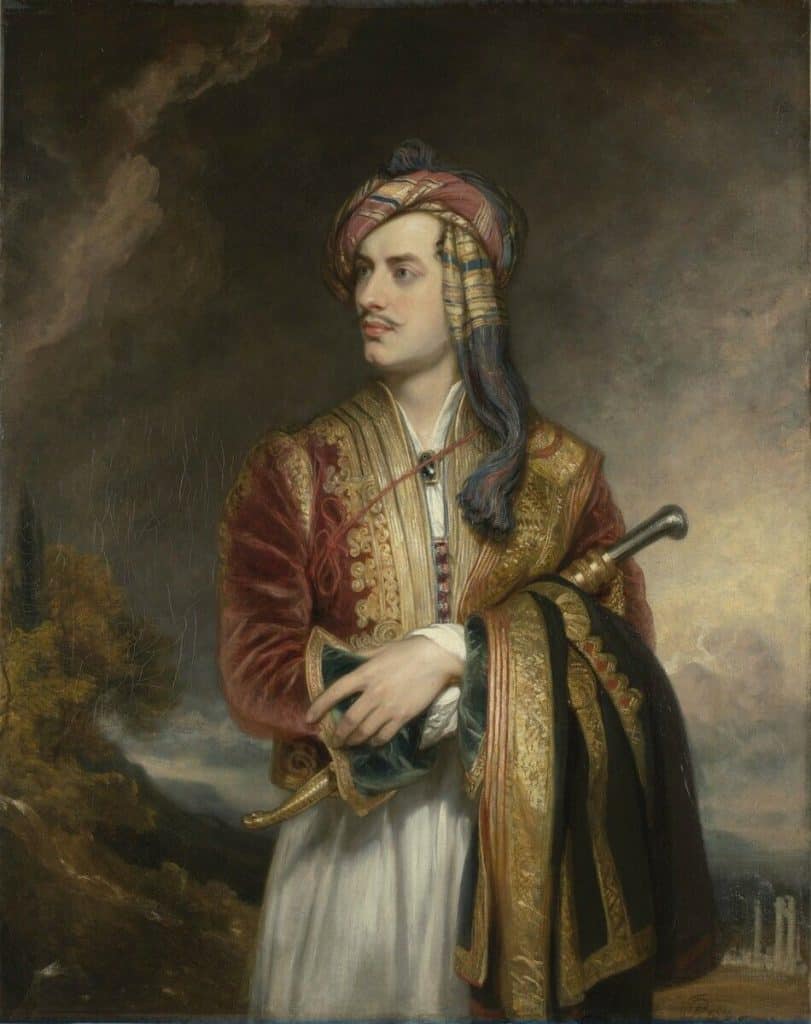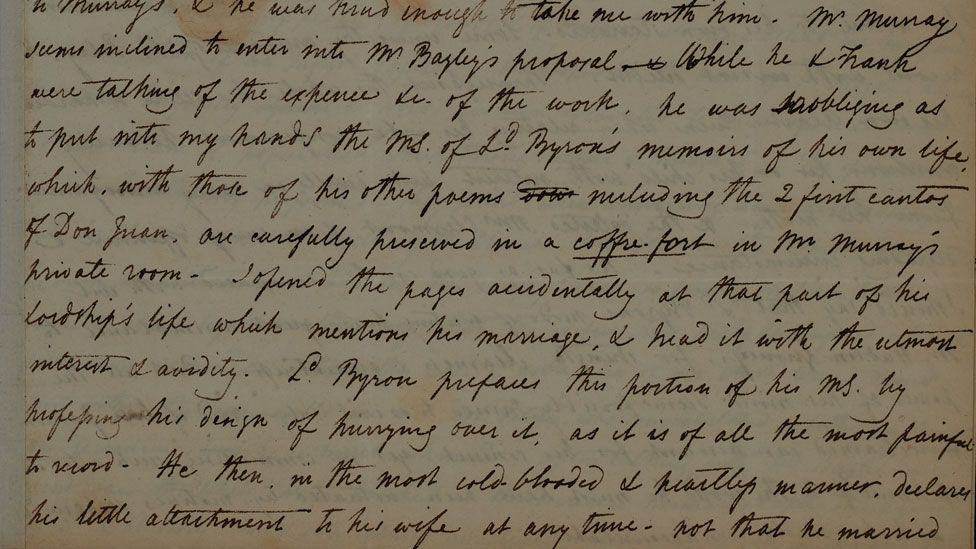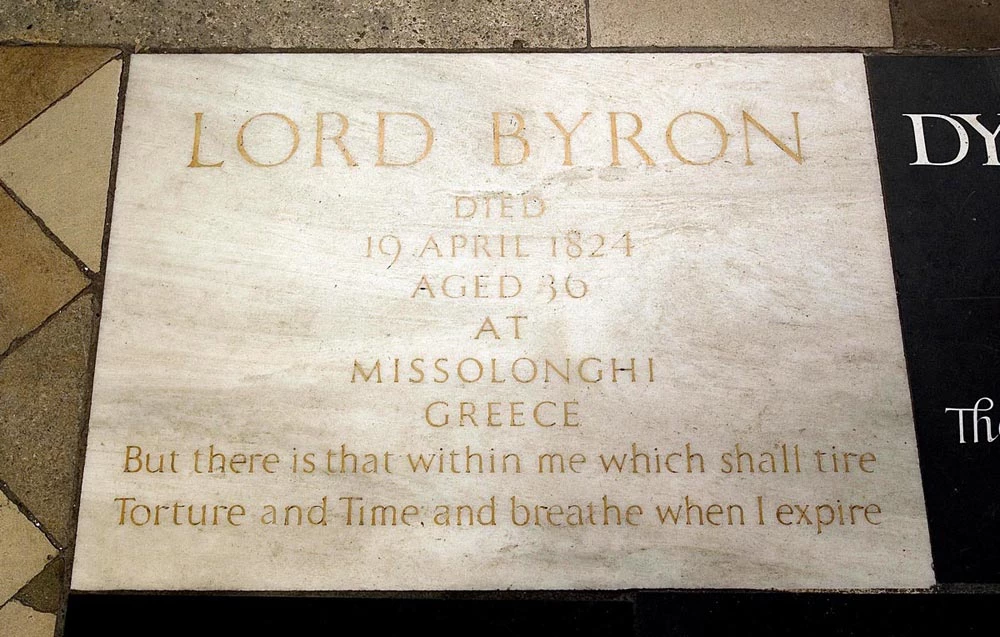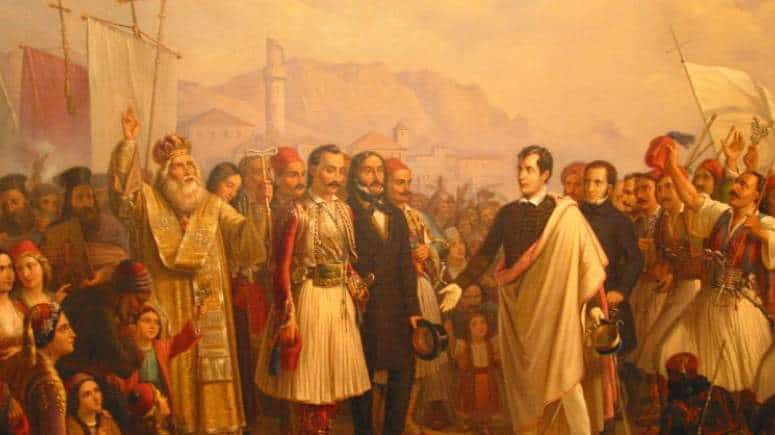On the 200th anniversary of Greece's folk hero Lord Byron's death, a previously unseen letter sheds light on the explosive content of his lost memoirs, which were destroyed after his death in 1824. The letter, unearthed by archivist Adam Green at Cambridge University, details the poet's brutal portrayal of his wife and mother-in-law.

Elizabeth Palgrave, daughter of banker Dawson Turner, described encountering the manuscript during a visit to publisher John Murray. In a letter dated October 29th, 1823, she expressed shock at Byron's "degrading" depiction of his wife, Anne Milbanke, and his "aversion" to her mother.
Palgrave's account reveals Byron's intention to downplay his marriage, describing it as a "painful" chapter he wished to "hurry over." She further details his "cold-blooded" portrayal, highlighting his lack of affection for his wife and his use of "opprobrious epithets" towards her mother. Palgrave even notes that Byron consistently referred to his wife by her maiden name, "Miss Milbanke," further emphasising the emotional distance.

The letter goes on to suggest that Byron's venom extended beyond his immediate family. Palgrave indicates the memoirs contained "severe remarks" not only on his in-laws, but also on their entire social circle, with Byron employing his wit "in the most cruel manner."
Palgrave paints a picture of Byron as a man obsessed with portraying himself as a villain, finding pleasure in "recording his own wickedness" and "exposing and degrading his wife." She also suggests a competitive streak, with Byron taking a perverse delight in "levelling" those perceived as virtuous.
Cambridge scholar Dr Corin Throsby hailed the discovery as "truly exciting," offering a rare glimpse into the lost memoirs. Throsby believes Byron would have revelled in the shock his work elicited, showcasing the enduring power of his "bad boy" persona.

Lord Byron is considered by many Greeks to be the country's "folk hero".
Byron joined the Greek War of Independence to fight the Ottoman Empire, for which Greeks revere him as a folk hero. He died leading a campaign in 1824, at the age of 36, from a fever contracted after the first and second sieges of Missolonghi.
(Source: The Guardian and Wikipedia)


